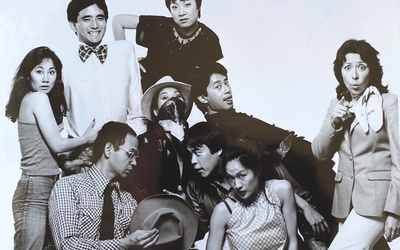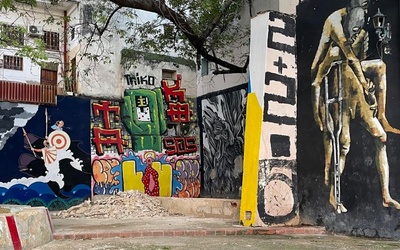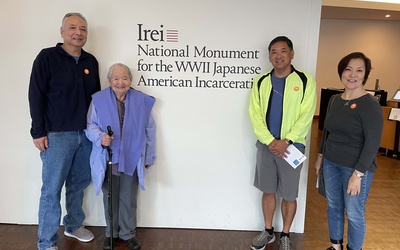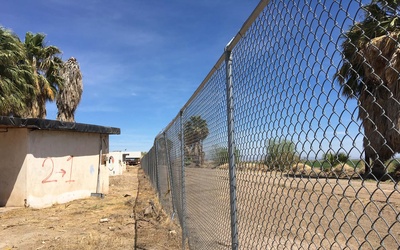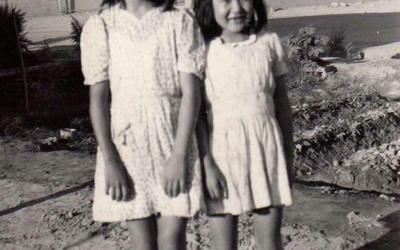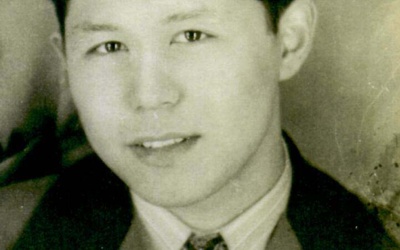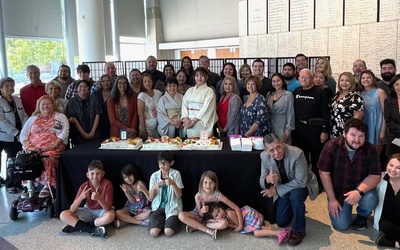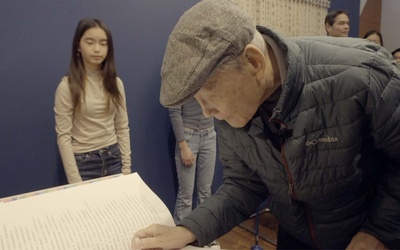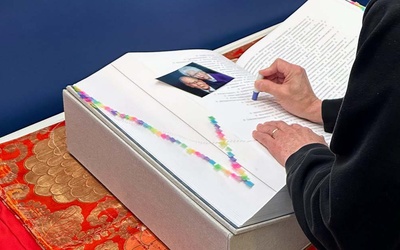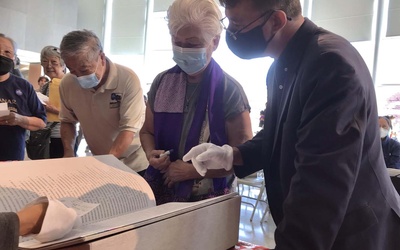
Sharon Yamato
@Sharony360Sharon Yamato is a writer and filmmaker in Los Angeles who has produced and directed several films on the Japanese American incarceration, including Out of Infamy, A Flicker in Eternity, and Moving Walls, for which she wrote a book by the same title. She served as creative consultant on A Life in Pieces, an award-winning virtual reality project, and is currently working on a documentary on attorney and civil rights leader Wayne M. Collins. As a writer, she co-wrote Jive Bomber: A Sentimental Journey, a memoir of Japanese American National Museum founder Bruce T. Kaji, has written articles for the Los Angeles Times, and is currently a columnist for The Rafu Shimpo. She has served as a consultant for the Japanese American National Museum, Go For Broke National Education Center, and has conducted oral history interviews for Densho in Seattle. She graduated from UCLA with bachelor’s and master’s degrees in English.
Updated March 2023
Stories from This Author
In the Beginning There Was Cold Tofu
April 17, 2024 • Sharon Yamato
I am lucky enough to know two talented, bright, and big-hearted women—Denice Kumagai and Marilyn Tokuda—who also happen to be the creative minds behind the formation of the Los Angeles community’s innovative Asian American improv troupe, Cold Tofu. To this day, according to its founders, “Cold Tofu remains the nation’s first and longest running Asian American improv and sketch comedy troupe.” Such luminaries as Amy Hill, Sab Shimono, and Dom Magwili are but a few of those who’ve graduated from …
Finding Joy in Cuba
Jan. 11, 2024 • Sharon Yamato
It’s hard to imagine anyone traveling to Cuba and coming back unchanged. It’s a place that has withstood the extremes of enormous wealth and poverty, slavery and revolution, and Soviet aid and the U.S. embargo. Despite these historic ups and present-day downs, there is a vibrancy in the streets, culture, and people that is intoxicating. Streets overflow with pulsating music, enticing dance, colorful cars, and ubiquitous art—all despite crushing poverty that has only gotten worse due to and since the …
The Legacy of Resistance: Nimura/Kashiwagi Family at Ireichō
Nov. 1, 2023 • Sharon Yamato
I feel I have paid many times over for the position I took at Tule Lake.Certainly, you don’t go around telling people you spent time at Tule Lake during the war.You try to push that back somewhere and not think about it.You try to block that part out of your life, but you have to live with it. —Hiroshi Kashiwagi, Swimming in the American Out of approximately 125,000 names of former detainees listed in Ireichō, more than 12,000 of them …
Rediscovering Poston
Sept. 15, 2023 • Sharon Yamato
There’s a familiar adage that when Nisei get together, one of the first questions asked is “What camp were you in?” I suppose it’s almost like asking where you grew up, yet it definitely holds more meaning. For example, there’s a strong proprietary nature to individual camps. When I went to Heart Mountain in 1994 for the first of dozens of trips to Wyoming, it was assumed my parents were held there, and I had to reluctantly confess they weren’t. …
Coming Home: My Family’s Journey to Ireichō
Aug. 15, 2023 • Sharon Yamato
And what we see is our life moving like that along the dark edges of everything, headlights sweeping the blackness, believing in a thousand fragile and unprovable things.Looking out for sorrow,slowing down for happiness. . . —Mary Oliver, “Coming Home” It was like coming home when 17 sisters, cousins, grandchildren, and spouses, some who had traveled from different parts of the globe, met on the day after a large family reunion—this time to honor living and dead family members by …
A Humble Man: 442nd Veteran Hiroshi Kunimura Honored at Ireichō
July 4, 2023 • Sharon Yamato
When Dennis Kunimura suggested to his father, 98-year-old former 442nd Regimental Combat Team (RCT) artilleryman Hiroshi Kunimura, that they drive from their home in Ogden, Utah, to Los Angeles, to mark the names in Ireichō of family members held at both the Salinas Assembly Center and the Poston Concentration Camp, the elder Kunimura did not expect the overwhelming reception that awaited him. In fact, when the elderly soldier was welcomed by a three-man camera crew from Nippon TV, JANM executive …
A Miraculous Family Gathering: Wasuke Hirota’s Mixed-Race Descendants Celebrate at Ireichō
May 17, 2023 • Sharon Yamato
The sound of joyful voices and poignant emotions echoed through JANM’s Aratani Hall when on April 27, 2023, some 50 family members of Hispanic, Native American, and Japanese descent gathered for the 150th birthday celebration of their Issei ancestor, Wasuke Hirota. Adults and children of all ages arrived from as nearby as Azusa, California, and as far away as Osaka, Japan, to pay their respects by stamping Ireichō, the sacred book in which the former detainee’s name was listed among …
Living, Dying, and Passing It On—Alan Nishio Family at Ireichō
March 28, 2023 • Sharon Yamato
As Los Angeles skies began to clear after the first spell of frigid March rain, a three-generation family gathering was being held to mark Ireichō, the book as monument to those incarcerated during WWII. Convening the intimate get-together was a familiar face in the Nikkei community, someone celebrated for his decades of selfless leadership and commitment to such causes as Asian American studies, redress and reparations, Little Tokyo preservation, LGBTQ rights, youth empowerment, and more. After relinquishing years of key …
Remembering Them—Tsuchiya Family Honors Elders Through Ireichō
Feb. 27, 2023 • Sharon Yamato
For as long as we live, they too will live, for they are now a part of us as We remember them. —Sylvan Kamens & Rabbi Jack Riemer These words of two Jewish rabbis were recalled by two Japanese American brothers who decided to fly all the way from Minneapolis to Los Angeles for the sole purpose of marking their ancestors’ names in Ireichō, the sacred book that lists all those held in detention during WWII. The experience stirred up …
Digging up Ways to Honor Her Ancestors—Kyoko Oda and Ireichō
Jan. 27, 2023 • Sharon Yamato
Sometimes it takes a soft-spoken woman like Kyoko Oda to use her charm to make sure the lives of 125,284 incarcerated Japanese American are not forgotten. Someone gentle on the outside but no less mighty on the inside as she works in multiple capacities calling attention to the lives forever changed by the mass detention. It can be seen in her work publishing her father’s Tule Lake Stockade Diary; working tirelessly on behalf of the Tuna Canyon Detention Station Coalition or …

